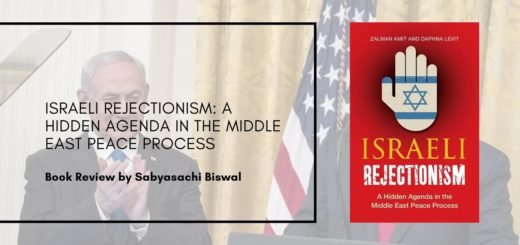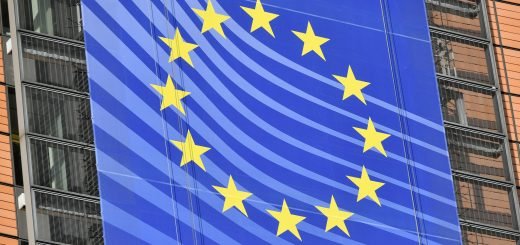India’s Afghan Challenge

Background
Relations between India and Afghanistan dates back to the Indus Valley civilization. Following Alexander’s brief occupation, the successor state of the Seleucid Empire controlled the region today known as Afghanistan. In 305 BCE, much of it was ceded to the Mauryan Empire as part of an alliance treaty. By the 10th century to the mid 18th century, northern India was invaded via Afghanistan. Among those were the Ghaznavids, Ghurids, Khaljis, Suris, Mughals and Durranis. During the national movement, Khan Abdul Ghaffar Khan and Khan Sahib were prominent leaders of the Indian Independence movement and active supporters of the INC. The friendship continued post-partition and the signing of Treaty of friendship in Jan 1950 affirmed the “everlasting peace and friendship between the two Governments”, the treaty provided for the establishment of diplomatic and consular posts in respective countries. The second half of the 20thcentury brought the battle of the cold war to the mountains of Afghanistan which till date are facing its repercussions.
Cold War and the Taliban rule
India was the only country in South Asia to recognize the Soviet-backed Democratic Republic of Afghanistan and the presence of Red Army in Afghan territories, and supported the soviet position in United Nations by going against the wishes of its NAM member countries [1] and even provided humanitarian aid to President Najibullah’s Government in Afghanistan which continued post-Soviet withdrawal in 1989. But civil war’s had taken place and soon the Taliban with the support of Pakistan was in power.

To strengthen India’s situation in Afghanistan, New Delhi under Prime Minister Narasimha Rao brought changes to India’s Afghan strategy and on the one hand, it started reaching out to the Mujahideen factions in Afghanistan[2]. Whereas on the other hand, building people-to-people relations and winning goodwill in the country through contributing towards Afghanistan’s economic welfare.
But the 1999 hijack of Indian Airlines flight 814 and the subsequent release of the three terrorists linked to Taliban ringed alarm in New Delhi which later on supported the Northern Alliance led by Ahmad Shah Masood along with the US which led to the fall of the Taliban rule in 2001.
Post 2001
The tide shifted yet again in 2001. With the U.S led war on Terror and the overthrow of Taliban rule, India found its way back into Afghanistan. However, in the overall geopolitical calculations, Pakistan retained all attention as an ally of the US and because of its proximity to the Taliban.
India was not a party to the 2001 Bonn conference, which discussed the post-Taliban order in Afghanistan. Though eventually India joined as an observer and engaged in informal negotiations which led to the selection of the Pashtun candidate, Hamid Karzai as the new president. Shortly, India established diplomatic relations with the newly established democratic government, provided aid and participated in the reconstruction efforts. It even endorsed UN Security Council Resolution 1076, which censured the Taliban for its severe violations of human and women’s rights. Hamiz Karzai after serving two terms was defeated in the 2014 election against the current President Ashraf Ghani.

India’s developmental assistance and its impact.
India’s strength lies in having built up a trove of goodwill over the years by remaining engaged with the legitimate government in Afghanistan. It has nurtured excellent relations, firstly with Mr Karzai and after him with Mr Ashraf Ghani, and CEO Mr Abdullah.
India being the largest regional contributor to Afghan reconstruction having provided assistance of nearly US $3 billion, mostly on humanitarian and development activities such as New parliament building, restoration of Stor palace, reconstruction of Salma dam, construction of Chintamal power substation, cricket stadium in Kandhar, Zaranj-Delaram strategic road. Whereas on the defence side Delhi has gifted military vehicles to ANA, Mi-25 and Mi-35 choppers, training to Afghan soldiers at OTA Chennai, IMA Dehradun. On the other hand, Cinema has played a great role in enhancing people to people ties, stories such as Kabuliwala by Rabindranath Tagore, display the cultural links between India and Afghanistan, and its importance can be understood when President Ashraf Ghani said that the impact of Bollywood in Afghanistan is more than even a billion-dollar could do[3].
In the field of education, India has provided multiple scholarships to Afghan students with thousands of them coming every year for gaining better education, currently, up-gradation work of Habiba High school, a US $1 million is underway in Afghanistan with Indian assistance.
The medical care contribution is around the US $5 million. Inline to which New Delhi adopted a more liberal visa policy in 2014 for Afghan nationals making it easier for them to travel India for medical tourism as against lack of proper facilities in their own land. The construction of around a hundred health centres, support for Indira Gandhi children’s hospital, etc. Even during the COVID pandemic, India continued its assistance of 75,000 MT of wheat via Chabahar port, HCQ and other tablets at a time when countries were hoarding up essential goods for themselves[4].
The Pakistan Challenge
The deep state within Pakistan and its bonhomie with Haqqani Network and other terror outfits have a deep impact on the future peace prospects of Afghanistan. As it was seen during the release of Abdul Ghani Baradar, after 10 years of jail by Pakistan to lead the dialogue as Taliban representative in Qatar.
Rawalpindi/Islamabad views its relation with Afghanistan from anti–India prism and dreams of having a pro-Pakistan government in Kabul. Pakistan’s peace rhetoric is more focused on keeping India out than peace in the region. On his first official visit to Kabul in November 2020, Prime Minister Imran Khan parroting Pakistan’s role on bringing Taliban to talks and promising to do everything to reduce violence in Afghanistan ended with some photographs with President Ghani.
Even though the Pakistani regime has no incentive on the peace establishment in Afghanistan, its proxies such as the Afghan Taliban and the Haqqani network cannot win democratically inside Afghanistan. So the only way they can come to power is if they are installed through outside assistance. With this outside support, Islamabad may gain some legitimacy, dollars and maybe relief in FATF.

Post US withdrawal
The recent statement by the Pentagon regarding the reduction in forces from Afghanistan at an early date[5] has once again caused anxiety in the strategic community of the region to which New Delhi is also not untouched. When seen from New Delhi’s perspective it seems the repetition of the 1989 Soviet withdrawal from Afghanistan, leaving India in a precarious position. three decades down the line, India faces a similar situation when the US is planning force withdrawal, as it was this period when India had built its presence in Afghanistan largely through developmental activities and soft power initiatives.
With Washington now seeking to leave Afghanistan, India needs to be ready with a future course of action, one being in close touch and support to the legitimate Afghan regime.
The coming days
India has long defended the policy of not engaging with the Taliban and pressing for an Afghan-owned and Afghan-led peace initiative. The situation is ripe enough for rethinking to secure its grounds in Afghanistan and its development process, having understood that the Taliban is both the problem and the solution.
The deal, having made Taliban legitimate players in Afghanistan, so India needs to engage with them, either directly or indirectly the way it did in November 2018, by sending two former diplomats in “non-official” capacity to Moscow, at a conference attended by a Taliban delegation[6].
In a post-U.S, Afghanistan, India will have to design its own playbook to protect and promote its goal in the region and engage strategically with the stakeholders of future Afghanistan.
References
[1] https://www.washingtonpost.com/archive/politics/1980/01/12/india-supports-soviets-afghan-position-in-un-debate/17dd1eb5-93f9-44bf-9f95-ecda7285843c/
[2] My Enemy’s Enemy India in Afghanistan from the Soviet Invasion to the US Withdrawal By Avinash Paliwal ,page-169
[3] https://www.orfonline.org/expert-speak/indias-soft-power-advantage-in-the-great-game-of-afghanistan-52624/
[4] http://www.mea.gov.in/Portal/ForeignRelation/Kabul_2020.pdf
[5] https://www.cnbc.com/2020/11/17/pentagon-announces-us-military-reduction-in-iraq-and-afghanistan.html
[6] https://www.outlookindia.com/newsscroll/indian-envoy-attends-signing-of-landmark-peace-deal-between-us-and-taliban-in-doha/1748221


















